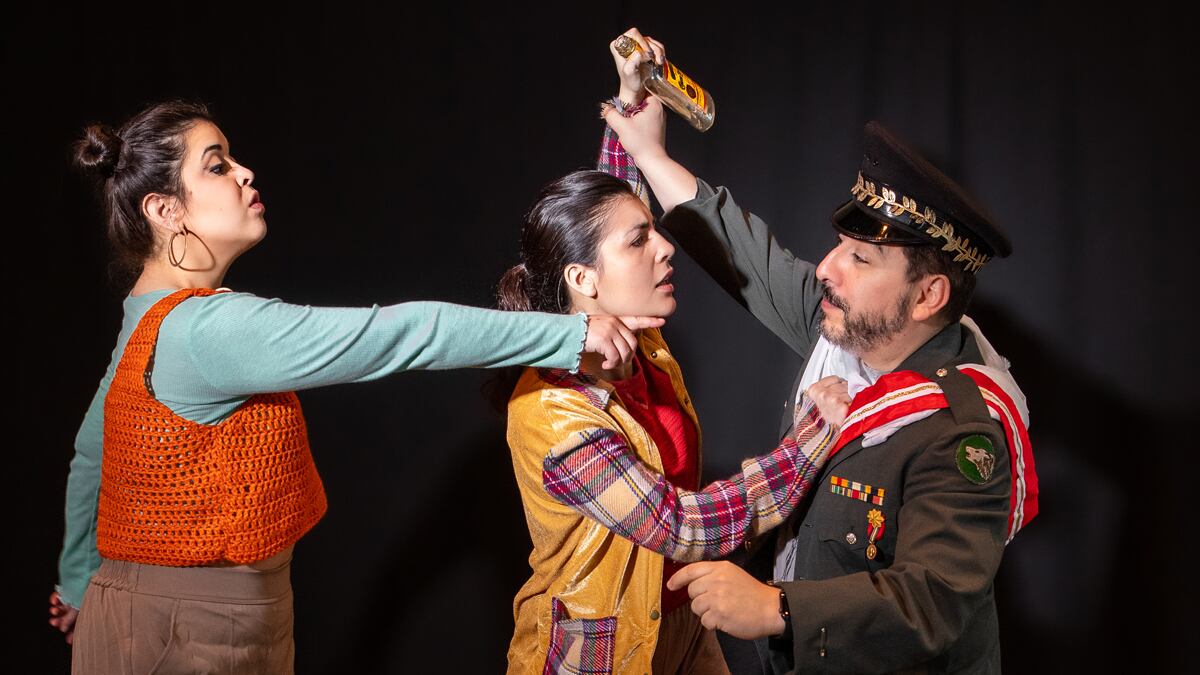Greek mythology has been adapted into modern-day tales that include everything from Disney’s Hercules to Gal Godot’s Wonder Woman. Yet Marc Pinate, the playwright who wrote Antigone at the Border, which will have its Portland premiere at Milagro Theatre on March 10, believes that Greek mythology is especially well suited to Chicano culture.
Pinate’s version of the Greek tragedy by Sophocles is set in the fictional city of Thebes, Arizona, whose history and culture are somewhere between the Southwestern United States and ancient Greece. Antigone is a DACA recipient and humanitarian worker, while her uncle Creon is a Border Patrol agent.
Pinate says he was partly inspired by Antigone’s desire to bury her dead brother in the original story, which reminded him of the bodies of migrants left near the border.
“Mainstream pop culture is very secular and individualistic and it’s on you to make something of yourself or change something,” he tells WW. “There is something there in Greek tragedies that appeals to the Latinx sensibility of tragedy, like mariachi songs. All of these things feel very dramatic and tragic and very Greek to me.”
WW spoke to Pinate about the political conditions in the country when he wrote Antigone at the Border and what he hopes audiences will take away from the play. The interview has been condensed and edited for clarity.
WW: Where did you get the idea for Antigone at the Border?
Marc Pinate: I run Borderlands Theater in Tucson, and one of our ensemble and staff members was undocumented. She had DACA status, and there was a moment in 2017 when there were a few months where nobody could reregister, so there was this gap and I couldn’t legally pay her…and it just really kind of brought to light the predicament that undocumented people face.
I started thinking about dead bodies in the desert with the migrants…and I started thinking about what if Antigone is a humanitarian aid worker and a DACA recipient and Creon is enforcing policy where you can’t retrieve undocumented migrants from the desert? And, little by little, I started seeing how that play could correspond to that issue at the border.
Can you talk a little more about why Greek tragedy translates so well into Chicano culture?
In Greek plays, there’s a lot of attention paid to the gods and abiding by their rules and commandments. There’s a lot of talk about fate and the language is very heightened. There’s something similar from my own culture, this idea of my grandmothers who have dreams or intuition. Other cultures do this too, certainly. There are no bigger forces at play in mainstream popular culture, whereas I think within Mexican culture there’s a little more thought to the role of God or the Virgin Mary.
What do you want audiences to take away from the play?
I think for folks that are not around immigrants or don’t know too much about the experience of immigrants except for what they see in news reports, they can gain a deeper appreciation of the situation a lot of these child arrivals find themselves in. There are a lot of mental health problems and deep trauma that is caused by being criminalized as a child, as well as not knowing if you’re ever going to see your parents.
For Hispanic audiences, the other theme is about assimilation and belonging and membership and what people are prepared to do to belong and to be a citizen of the American dream. Creon represents that assimilationist route, going into the military first and then into law enforcement, whereas Antigone represents a more activist route.
Both characters are trying to get a piece of the pie and do it in the way they think is the best. I think it’s a conversation amongst Brown communities. There’s so much diversity within the Latinx community. I want to start a conversation amongst Latinx communities because we need to get on the same page about certain things.
SEE IT: Antigone at the Border plays at Milagro Theatre, 525 SE Stark St. 503-236-7253, milagro.org. Premieres 7:30 pm Friday, March 11. 7:30 pm Friday-Saturday, 2 pm Sunday, March 11-26. $27.

